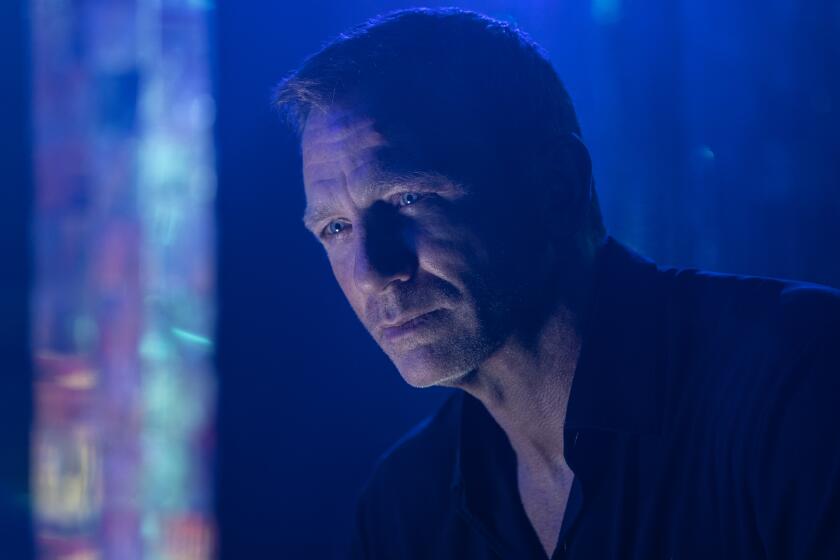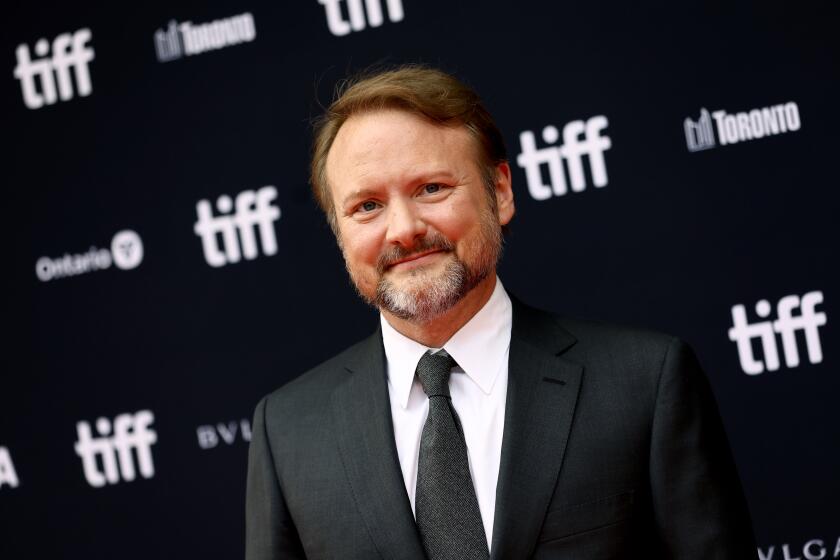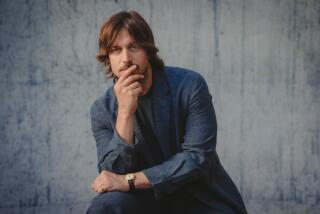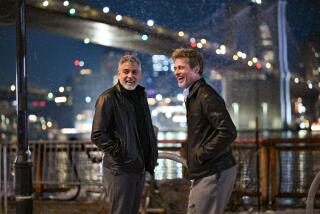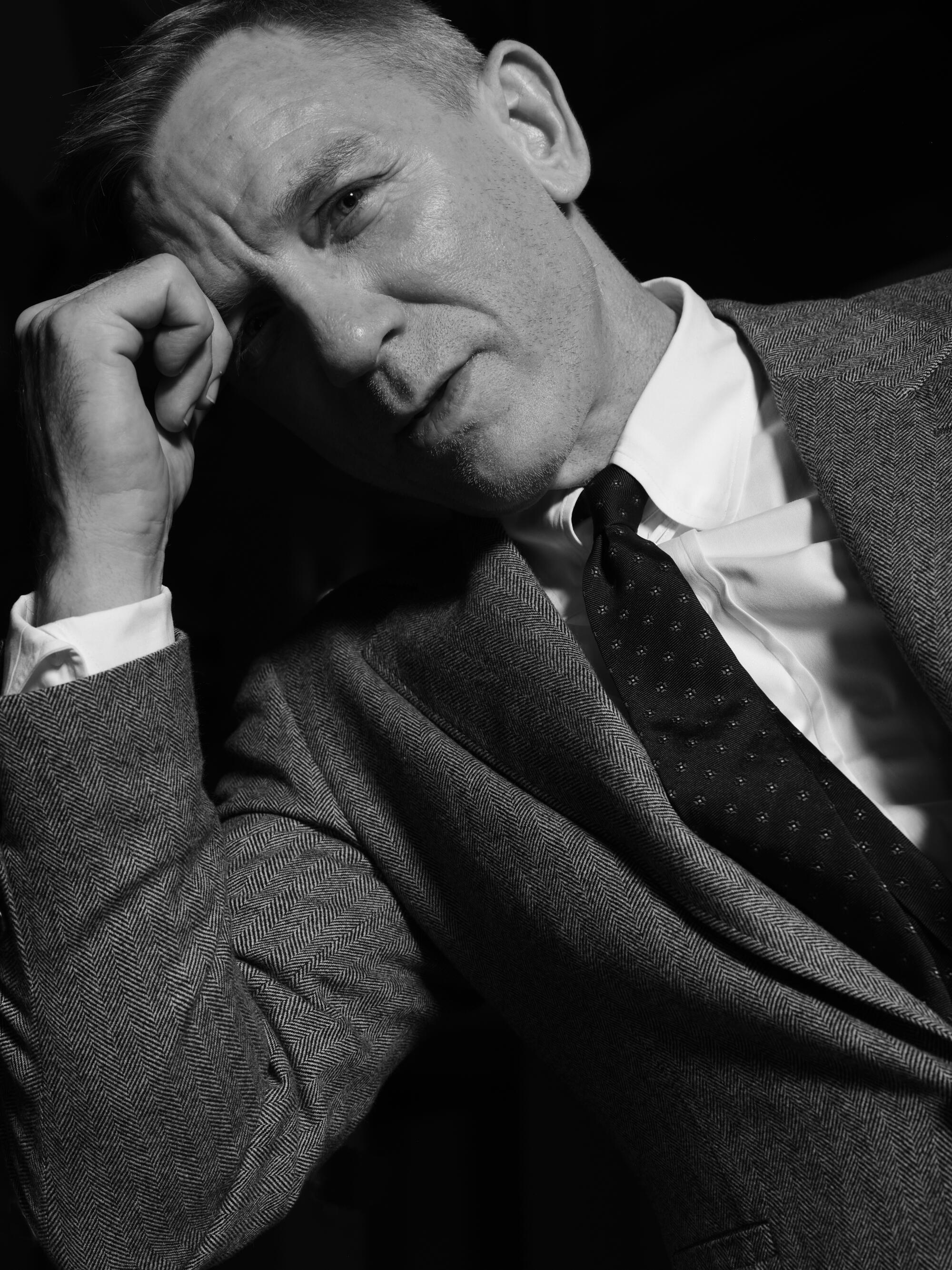
Daniel Craig, star of “Glass Onion: A Knives Out Mystery,” says: “I’m very, very fortunate as an actor to have got to a stage in my career where I can now go, ‘You know what? I’m gonna pick and choose.’”
You might call the timeline of this transitional period in Daniel Craig’s career circuitous, even tangled.
In the three-plus years since filming his final scene as James Bond, Craig saw the release of “No Time to Die,” the last of his five movies as the British super-spy, delayed multiple times by the COVID-19 pandemic; witnessed “Knives Out,” in which he played Southern detective Benoit Blanc, bring in more than $300 million worldwide and earn an Oscar nomination for writer-director Rian Johnson; and completed the next installment in the emergent franchise, “Glass Onion: A Knives Out Mystery.”
Just don’t ask Craig to unravel it.
“Sure, if you say so,” Craig said when asked of the overlap between “Knives Out,” “No Time to Die” and “Glass Onion” during a recent Zoom call from his home in Brooklyn, N.Y., noting that exactly when he did what is a blur.
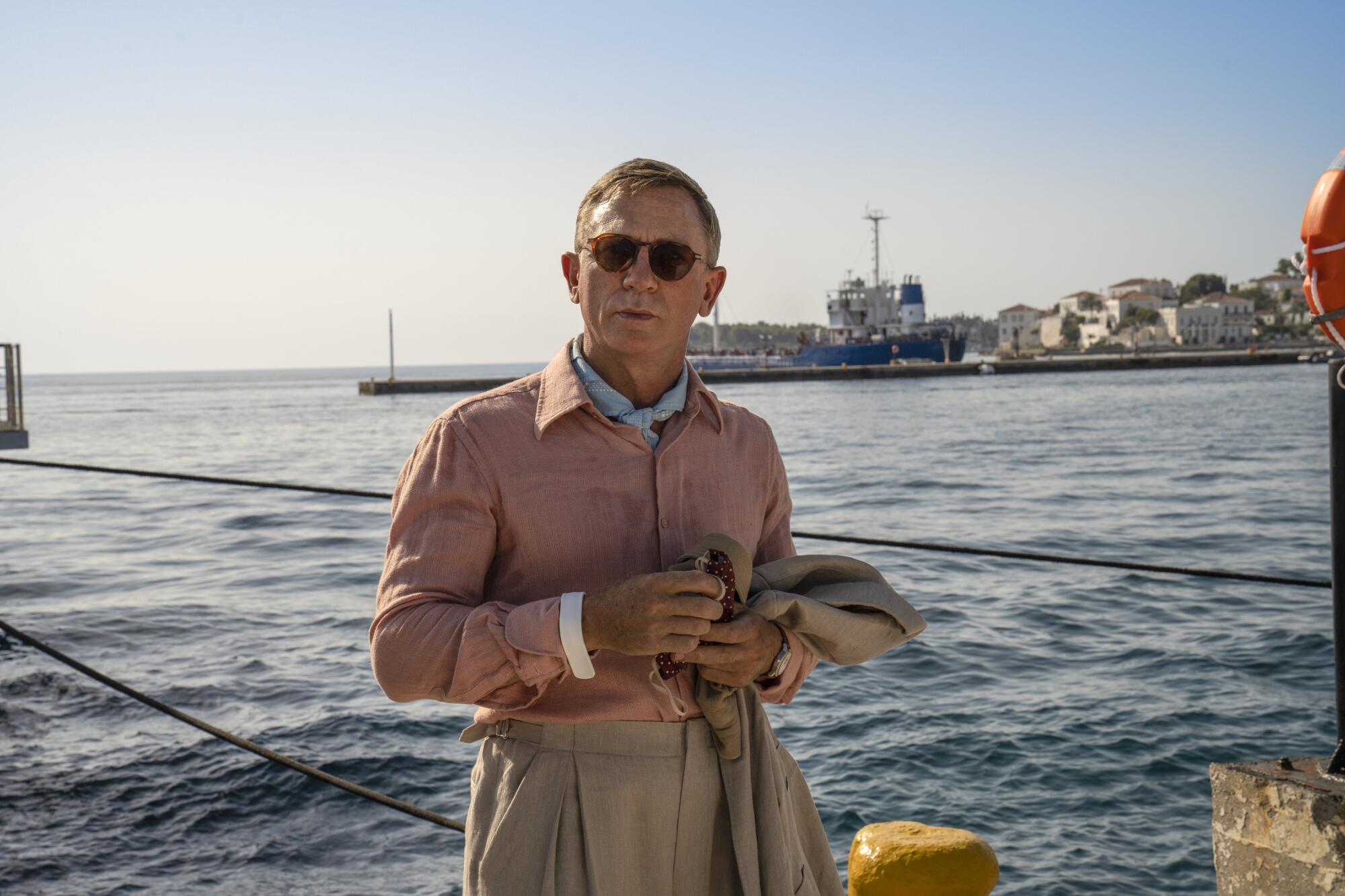
That may explain why the 54-year-old actor hasn’t had adequate time to reflect on his run as one of the most iconic characters in movie history, or what it meant to him personally and professionally.
“I’d love to give you a very succinct and proper answer to that, but I don’t think I have one,” Craig said. “It’s just too big of a thing to really get into a pithy comment. It’s been a large part of my life and has taken up most of my working life for the past 17, 18 years now. And to really put that into some sort of perspective, I don’t know if I’ll ever be able to do it. Really. It’s not that I’ll not want to, but to sort of sum it up, how does one sum that up?”
With the announcement that Craig had been chosen as Bond in 2005, the relatively little-known character actor suddenly became one of the world’s most famous leading men. And as a performer, Craig transformed the role in a way none of his predecessors had, bringing a Cold War-era character firmly into the 21st century with emotional interiority, even vulnerability, alongside the bruising hardman.
Craig’s recent work, from the sly, comedic Blanc to his explosive turn in “Macbeth” on Broadway opposite Ruth Negga to the recent Belvedere vodka ad, directed by Taika Waititi, that finds Craig dancing through a Paris luxury hotel, point to an actor finding his footing as he puts Bond behind him. But Craig takes issue with that assessment.
James Bond will return, but Daniel Craig won’t. How well did the series send him off? Two critics debate the spoiler-filled finer points.
“You’re making the mistake that I somehow have a plan,” Craig said with a laugh. “I don’t give it that much thought. This isn’t post-Bond for me. I don’t have a game plan. The things that happen in my life professionally, the decisions I make about them are gut, mainly.
“They’re not like, ‘Oh, I need to do this now and I should do this and I should do this,’” said Craig. “I used to do that a little bit when I first got Bond and the shock to the system of it, and it’s a fool‘s errand. You can’t balance life out like that. I don’t think life works in that way. ‘Knives’ Out came along and who knew? I mean, certainly I didn’t, Rian didn’t, [producer] Ram [Bergman] didn’t. None of us knew that it would be a success or that people would like it.”
“Glass Onion,” in theaters Nov. 23 for a limited one-week engagement a month before its streaming debut on Netflix Dec. 23, finds Blanc on the private island of a tech billionaire (Edward Norton) who has invited a group of old friends — played by Kate Hudson, Kathryn Hahn, Leslie Odom Jr., Dave Bautista and Janelle Monáe — for a weekend-long murder mystery party. Secrets are revealed, truths told and finding out who gets killed is as much a part of the movie’s fun as finding out the killer.

The soft pastels, creamy safari suits, high waists and jaunty neckerchiefs of Craig’s costumes in “Glass Onion” — which he described as a cross between Cary Grant in “To Catch a Thief” and Jacques Tati in “Monsieur Hulot’s Holiday” — signal a bolder, broader movie than “Knives Out.” (Perhaps no surprise, given the $450-million deal Netflix reportedly made for “Glass Onion” and another sequel.)
“The movie itself definitely is a little bit bigger. It was actually entirely a function of who and what it’s yelling about,” Johnson said. “I think once I started writing to these characters and to this situation and to the stuff that the movie was talking about, its voice just naturally raised a couple of decibels.”
Johnson and Craig first met when Johnson was putting together his 2008 movie, “The Brothers Bloom,” which ultimately starred Mark Ruffalo, Adrien Brody and Rachel Weisz. (Imagine the timeline shift had Weisz and Craig, who married in 2011 and have a child together, co-starred in “Bloom.”)
Keeping in touch, Johnson and Craig next batted around the idea of the actor appearing in Johnson’s “Star Wars: The Last Jedi” — “This will be the headline: ‘Daniel was supposed to be in “Star Wars,’” Craig joked — but the pair didn’t end up working together until “Knives Out.”
Johnson typically does not write for specific actors, so writing “Glass Onion” knowing that Craig would be returning to the role presented him with an unexpected difficulty.
“I didn’t like it,” Johnson said. “It was an obstacle, actually. It was hard because I didn’t want to write an imitation of him from the first movie.”
Fresh from the world premiere of his “Knives Out” sequel, Johnson explains the origins of Benoit Blanc and why he wants his Netflix film in theaters.
Likewise, Craig was concerned, while working again with dialect coach Diego Daniel Pardo, that Blanc’s deep Southern accent not become a parody of itself.
“I just was nervous about returning to something and sort of doing an impression of my impression,” Craig said.
Perhaps the biggest addition to the character of Benoit Blanc in the new film is the acknowledgement that he is queer. One flashback scene reveals Blanc at home during the early days of the pandemic — the film is very specifically set in 2020 — and his live-in partner opens the door to a visitor. (Just who that partner is played by is among the film’s many delightful cameos, including the late Stephen Sondheim and Angela Lansbury.)
“It felt very naturally what the character was,” said Johnson, who notes that the idea arose while shooting “Knives Out” but didn’t solidify until writing the second film. “I had this opportunity to get, like, one glimpse of his home life and it made sense to me that he was queer.”
“We didn’t talk about it very much. There was no kind of great discussion about it,” Craig said. “When it came down to it in this one, it just felt like a good choice.
“Without spoiling the movie, it’s like, who wouldn’t want to live with that human being?” he continued. “There’s no great depth to it. It made a lot of sense to me.”

During his tenure as Bond, Craig suffered multiple injuries that at times delayed production, which became emblematic of the seriousness he brought to the part. However, it also led to incidents such as the notorious comment that he would rather “slash my wrists” than play Bond again just after finishing 2015’s “Spectre.” Looking back, Craig feels the emphasis on the physical toll the productions took on him may have overshadowed his other contributions to the Bond films.
“It’s my fault because I kind of didn’t shut up about the fact that I had all these injuries. I’m pissed off at myself that I ever even spoke about them,” Craig said. “I put way more work into the creative side of those movies than I did into the physical side of those movies. The physical side of the movies was just the job. I had to do it. I trained, learned the fights, that’s kind of my brain not working. The rest of it, the look, the feel, the kind of the temperature of the movies, getting Sam Mendes in to direct ‘Skyfall,’ that’s where the hard work was. Going to the gym is hard work, but it’s not really brain hard work.”
Johnson pointed out that Craig brings that same dedication to the Benoit Blanc films.
“I know he deeply loved doing Bond and I know how deeply emotionally committed he was to it. They also were big, physically demanding movies. They were hard,” Johnson said. “But I don’t want to underplay the amount of work he puts into these movies. He works his ass off and in order to make it look cool and breezy and effortless, a hell of a lot of effort goes in on his part behind the scenes.”
Craig has often recounted the story of how he told Bond co-producer Barbara Broccoli in the back of a car after the premiere of his first Bond film, “Casino Royale,” that he wanted Bond to die at the end of his final film. And indeed, at the end of “No Time to Die,” Bond sacrifices himself to a deadly missile attack so that the woman he loves and the daughter he just learned he had could live on.
Craig explained why it was important to end his run in that legendary character in such dramatic fashion.
The complete guide to home viewing
Get Screen Gab for everything about the TV shows and streaming movies everyone’s talking about.
You may occasionally receive promotional content from the Los Angeles Times.
“Two things, one for myself and one for the franchise,” Craig said. “One, for the franchise, was that resets start again, which [the franchise] did with me. And I was like, ‘Well, you need to reset again.’ So let’s kill my character off and go find another Bond and go find another story. Start at [age] 23, start at 25, start at 30.
“The other was so that I could move on. I don’t want to go back,” Craig said. “I suppose I should be so lucky if they were to ask me back, but the fact is I need to move on from it. The sacrifice that he makes in the movie was for love and there’s no greater sacrifice. So it seemed like a good thing to end on.”
While Johnson admits he is only “in the very top soil” of working on a third Benoit Blanc mystery, he noted, “Nothing’s as creatively exciting to me right now as figuring out what the third one could be that’s completely different from both ‘Glass Onion’ and ‘Knives Out.’”
And even if Craig is reluctant to speak in such terms, this latest phase of his career finds him with an enviable freedom, leaving Bond behind, moving forward with Blanc and leaving space for whatever else he wants to do.
“I’m very, very fortunate as an actor to have got to a stage in my career where I can now go, ‘You know what? I’m gonna pick and choose,’” Craig said. “I have a family that I need to be with most of the time, until they hate me, and then I can go away and do some work. That’s more important to me right now.
“And also I just want to do the work I really desperately want to do, as opposed to work that I should do. I want to be passionate about the jobs I do, so I try and be as picky as I can.”
As to whether Craig will make another film before taking up the role of Blanc again? That will have to remain, well, something of a mystery. Enigmatic to the very end, Craig demurred when asked if he knows what’s next: “Yes, but I don’t want to talk about it.”
More to Read
Only good movies
Get the Indie Focus newsletter, Mark Olsen's weekly guide to the world of cinema.
You may occasionally receive promotional content from the Los Angeles Times.
